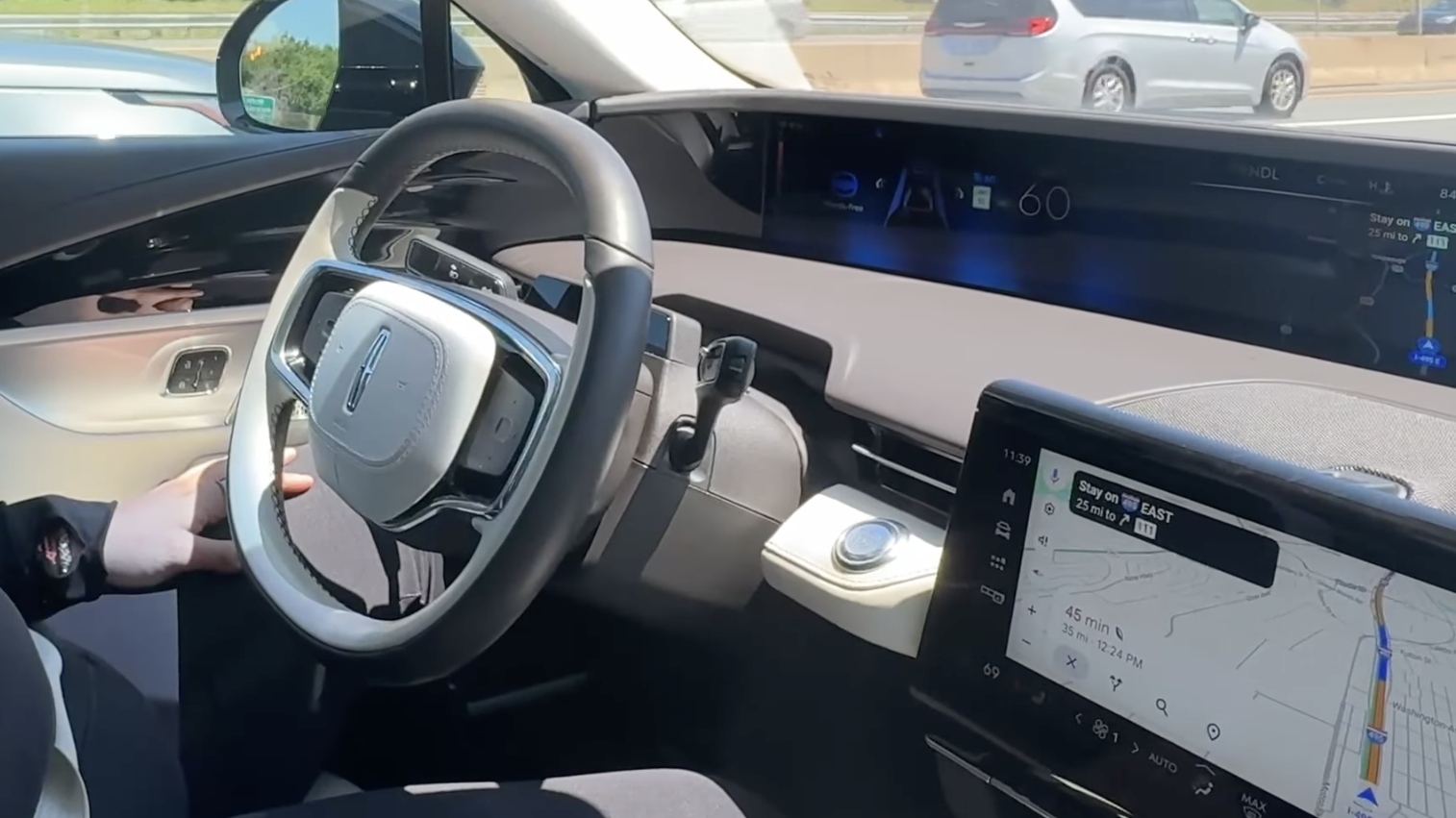
Driving hands-free either sounds totally amazing or entirely terrifying depending on who you ask. I happen to fall somewhere in the middle, having tried it before in small highway segments but never on a long-range voyage like the technology is intended for. But then I got to borrow a Lincoln Nautilus for a few days, aligned with a short road trip that would see approximately 150 miles of hands-free Blue Zones.
Blue Zones are areas of controlled access highways where Ford’s BlueCruise driver assistance feature is available. As a Ford subsidiary, Lincoln started rolling out BlueCruise to select models in its own fleet. This includes the Nautilus 2024, a spacious SUV that starts at about $50,000 but can be decked out to the utmost degree of luxury. Think: autonomous parking, panoramic vista roofs, door-to-door digital displays, integrated scent diffusers and more.
Even with all the bells and whistles, the Lincoln Nautilus can be boiled down to a pair of key experiences: BlueCruise and the Lincoln Digital Experience. I could explain both to you in immense detail, or you can check out my YouTube video where I go over the highlights of driving this swanky SUV on Long Island’s I-495.
Why use BlueCruise?
There are really two benefits of using BlueCruise or having a car like the Lincoln Nautilus with BlueCruise. The first of those is in-lane positioning — this helps keep the car within the lines of the lane, correcting any little natural shifting from my hands.
But perhaps more importantly, it pays attention to the cars on other sides of me and adjusts my alignment in respect. So if someone on my right was shifting slightly left closer to me, as long as there is not anyone close to me on my left, the car will move a little closer to the left edge of my lane. If you’ve ever had the pleasure of joining Long Island drivers, you’d know that this feature definitely comes in handy.
The second benefit is a bit more obvious: hands-free driving. To use hands free driving, you need to be in a Blue Zone. BlueCruise operates on 97% of controlled access highways in areas called hands-free Blue Zones across the U.S. and Canada. When I entered a Blue Zone, the dash prompted me to enable adaptive cruise control. Once the system calibrated my positioning, it told me that I could remove my hands from the wheel.
Although I might not have been sold on the general safety of hands–free driving before, BlueCruise made me feel secure with its awareness detection system.
While using BlueCruise, the car can make lane changes automatically, waiting until your vicinity is clear once you’ve hit the turn signal. It also changes speed automatically, slowing down relative to the car in front of you. As I hit small bouts of traffic on my trips, the car paced itself accordingly, revving back up to my set cruise control speed once I passed the congestion.
Although I might not have been sold on the general safety of hands–free driving before, BlueCruise made me feel secure with its awareness detection system. If I looked away from the road in front of me for more than a few seconds, it beeped loudly and threatened to disable hands-free functionality. In other words, it’s a feature that must be used responsibly and without distraction, and BlueCruise has certain measures in place to make sure it's not taken advantage of. Hands-free driving isn't faultless, but as long as you consider BlueCruise more as a bit of assistance instead of an excuse to not drive your own car, it can be a useful tool.
In addition to select Lincoln models, BlueCruise is available in Ford EVs such as the Mustang Mach-E and the F-150 Lightning, If you want to see the tech action, take a look at the YouTube video above.







